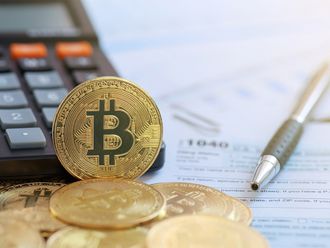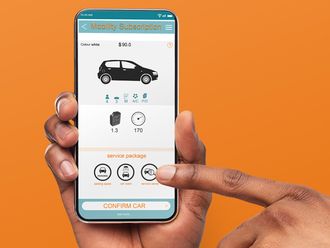The UAE has issued a new visa scheme that allows investors in properties worth Dh1 million and above to stay in the country for three years without having to leave the country.
The property-linked visas have been a major issue of contention over the last 15 years in the UAE. When large-scale real estate development started then, properties were promoted and sold on the premise that they automatically came with residence visas.
But in the last decade, when global demand for the UAE's real estate market was highest, there was a sudden reversal of the law. Those who lobbied for that reversal believed that investors no longer considered a residence visa a crucial factor in their investment decision.
They believed the meteoric growth in the property market would compensate for that. They believed that curbing the visas was important because it would have serious demographic and cultural ramifications on the UAE.
It is also worth noting that not all emirates had opened their markets to foreign investment at the same time. And so while certain emirates' real estate market was growing, others were still wary of such an open market or — at the very best — starting to contemplate the opportunities. This probably contributed to the emergence of varying views on social costs for the economic returns.
Fast forward to June 2011 and all the emirates have adopted pro-market real estate policies and have benefited during the boom years and suffered with stalled projects and lacklustre demand over the last three years.
And so a uniformity of views that came about is what allowed for this decision to be a federal one; everyone's on the same page on this one.
The decision is in sync with the Arab Spring as well, as many wealthy Arabs feel the need to domicile their funds and families somewhere close to home until things calm down. The UAE features very prominently in that category.
Threshold debate
Some analysts have speculated that the Dh1 million threshold is too high. They note that Dh1 million would've bought you a one- or two-bedroom during the boom years but that half a million would do so today. But the UAE's real estate developers have always been biased towards the upper middle class and above. Also, considering its demographic concerns, having less people with more funds is socio-politically a far more appropriate scenario.
Various national daily newspapers have expected this to boost the UAE's real estate market. One daily even went so far as to say that market expectations are for a 10 per cent increase in property values across the UAE.
Regardless of whether the paper's statement proves to be true, the question presents itself: What are we really trying to achieve with this directive?
If the goal, as it appears to be, is to rescue the market and reverse the slowdown, then we have to ask ourselves if this is a long-term solution or a temporary one.
Sustainable goal
Economic policies cannot be developed in a separate silo from social ones. The goal should be sustainable development. Of course, this is not to criticise the policy itself — the UAE's property market was in serious need of a boost so that it can finally start to shake off the crisis' dust — but rather an attempt to ensure that this policy isn't developed separately from other ones. The UAE needs a comprehensive economic recovery plan that when looking at real estate considers exactly the role it wants it to play over the long run.
The sporadic manner by which the details of this new property visa law are trickling in isn't very assuring that such a long-term role has been recognised. Until now, the role we've envisioned for real estate to play in the economy has been very linear: develop a property, sell it for a mark-up and recognise the resident's consumption as a multiplier.
With so much available stock, the real multiplier we should be looking at should extend to entrepreneurship. Could we look at the excess real estate as an asset that could be used to incubate start-ups? And if 90 per cent of them failed, 5 per cent dragged themselves along and 5 per cent really made it. Would the economy be better off than just sitting on all this real estate till only Dh1 million investors came along? I don't think we should put all our eggs in one basket.
Mishaal Al Gergawi is an Emirati current affairs commentator.












